During the reign of Emperor Wanli in the Ming Dynasty, the Tartans cause troubles at the border but are defeated and offer the precious golden chrysanthemum to beg for peace. Wanli bestows it to the meritorious General Lin’s daughter Yuejiao as dowry and marries her off to General Zhang’s son Yanlong. Meanwhile Imperial father-in-law Ou conspires to rebel and secretly orders his son Wenguang to steal the chrysanthemum while framing the two generals for conspiracy with the Tartans to betray the country. He further colludes with the army commander Yan and kills the two generals and Yanlong. Fortunately Yuejiao is able to escape from the disaster with the help with a faithful servant Tianyi and obtains from him evidences of Commander Yan’s crime. Together with the generous help of Duke Ma Yinglong, they charge to the imperial palace and force Emperor Wanli to eradicate the treacherous gang to restore justice.

- Peking Opera Research Centre of Hebei
- Four Stylistic Schools of Xiaosheng Roles in Yue Opera
- A New Cantonese Opera Investigation to Redress a Wrong
- Reverberating Notes from South China Highlights of the Eight Classic Pieces
- Zhejiang Yongjia Kunqu Opera Troupe
- Yunnan Dian Opera Theatre
- Experimental Theatre of Liyuan Opera of Fujian
- Haifeng Baizi Opera Troupe of Guangdong
- No.2 Troupe of Yu Opera Theatre of Henan
- Jingkun Theatre
Haifeng Baizi Opera Troupe of Guangdong
Baizi Opera is a theatrical genre popularly found in the coastal regions of Guangdong and Fujian provinces where the dialects of Haifeng, Chiuchow and Minnan are spoken. It was inscribed into the first National List of Intangible Cultural Heritage of China. Performed in the vernacular Baizi (also known as Fulaohua), both singing and line delivery form the distinguishing features. Its repertory consists mainly of ‘civil’ plays (as opposed to ‘martial arts plays’). The use of vocalise and linking sounds of ‘ah’, ‘eeh’ and ‘oi’ are the characteristics in the singing. Baizi Opera contains a rich variety of musical accompaniment and entr’acte music, as well as hundreds of ‘string poems’ (Xianshi) and set tunes that feature the erxian and suona as the lead instruments. They enhance the dramatic and compelling effects when used with scenes and stage prompts. There are seven roles types as in Nanxi (Southern Opera), namely sheng (male), dan (female), chou (clown), jing (painted face), gong (old male), po (old female) and tie (young girl). The staging is meticulous but the presentation can be vivacious and lively. The Haifeng Baizi Opera Troupe of Guangdong is the only state-run troupe in Baizi Opera in China. Since its founding in 1952, it has won numerous awards. For the Chinese Opera Festival 2014, it will be bringing the full-length opera, Chrysanthemum to Hong Kong to showcase the unique features of the genre. Other items on the programme include operatic excerpts, such as The Escape, which is a sequel to the Ming chuanqi play; Wreaking Havoc in the Yan Residence; and other outstanding works in the traditional repertory such as Interrogating Tao and Meeting at the Pavilion.
Chrysanthemum
| cast | Yu Jincheng, Yu Haiping, Yu Ronggui, Lu Junzhan, Tang Dacong, Ma Sixiang, Xu Kaoyu, Zeng Tenghui, Qiu Yanhong |
Meeting at the Pavilion from The Butterfly Lovers
The Butterfly Lovers is a perennial favourite enjoying enduring popularity. This excerpt contains a number of classic Baizi singing parts which demonstrate the traditional vocalization style.
Rich Zhu Yingtai disguises herself as a man to go to study in Hangzhou and become the best of friends with Liang Shanbo after three years of study but Shanbo is unaware of her gender. At the meeting at the pavilion Shanbo finally realizes she is a woman but she has already been betrothed to the Ma family. The original good match is rendered hopeless. Shanbo is ridden with guilt and frustration and departs in bitter regret.
| cast | Yu Haiping, Zhong Jingjie, Qiu Yanhong, Chen Qiuju |
Interrogating Tao from The White Gauze Robe
Adapted from the Ming chuanqi play Tale of the Gauze Robe; this excerpt tells of how Tao explains the background story to Xu which is characteristic of the traditional style in Baizi Opera.
Su Yun was killed by Yangzhou rogue Xu Neng but Su’s wife was rescued fortunately and gave birth while fleeing on the way. The baby boy was picked up by Xu who named him Jizu and brought up by the servant Tao Dai. Eighteen years later Jizu is named Top Scholar and appointed as the Inspector of Justice in Jianan. Hearing Jizu’s reputation of being just and clean, Su’s wife risks her life to file a suit. After listening to the story related by Tao, Jizu obtains the hard evidence. The wrong done eighteen years ago is finally redressed.
| cast | Lu Junzhan, Yang Baohua |
The Escape from Helping Zeng Rong Escape
A sequel to the Ming chuanqi play Wreaking Havoc in the Yan Residence; this excerpt demonstrates traditional vocalization style and rich stylized moves and routines. It won the Performance Award and Outstanding Repertoire Award at the National “No. 1 Theatre Troupe” Spectacular in 1992.
The Zeng and Yan families are rivals for generations. Zeng Rong changes his name to become the adopted son of another family and marries the Yan family daughter Lanzhen but his identity is exposed by her grandfather, Song and father, Shifan who strive to exterminate him. Fortunately with Lanzhen’s clear sense of right and wrong and Madam Yan’s chivalry, Rong is able to escape the doomed fate.
| cast | Wu Qingjian, Luo Huimei, Qiu Yanhong |
Murder at the Temple from Qin Xianglian
Han Qi is ordered by Chen Shimei to kill Qin Xianglian and her children at the broken temple but after listening to Qin’s story, Han is torn between the dilemma of loyalty and righteousness. The excerpt displays drastic emotional changes in the characters; sadness, surprise, delight and anxiety, filling the drama with tension.
After being named Top Scholar, Chen Shimei is greedy for prosperity and fortune and lies about his being unmarried and becomes the imperial son-in-law. His first wife Qin Xianglian brings along their children to go to the capital to find him but Chen declines to recognize her for fear of being accused of deceiving the throne. Qin files a suit to Justice Bao in Kaifeng. To avoid the truth being exposed, Chen orders Han Qi to kill Qin and the children to silence her.
| cast | Yu Haiping, Ma Sixiang, Chen Qiuju, Huang Jiahua |
Baizi Opera
Baizi Opera, or nicknamed ‘Nanxiabaizi’ or ‘Laobaizi’, has been brought into Hailufeng from Minnan since early Ming dynasty or even earlier times where the official dialect of the central provinces (Zhengzi) was forsaken and vernacular ‘Fulaohua’ (Baizi) was used instead. It was inscribed into the first National List of Intangible Cultural Heritage of China in 2006. Baizi Opera is a genre with multiple vocalization styles and divided into large-scale and small-scale plays. Its music are mainly set tunes medley complemented by folk ditties. The use of vocalise and linking sounds of ‘ah’, ‘eeh’ and ‘oi’ are the characteristics in the singing which is sweet and mellow. Baizi Opera contains a rich variety of musical accompaniment and entr’acte music, as well as hundreds of ‘string poems’ (Xianshi) and set tunes that feature the erxian and suona as the lead instruments. Traditional repertoires include early Nanxi (Southern Opera), Qingyangqiang, Yiyangqiang, song books and local tales. Stock role types are categorized into laosheng (old male), wensheng (civil male), huadan (young female), wushan (female lead), chou (clown), gong (old man), po (old woman) , jing (painted face) and tie (young girl), each with unique features.
Yu Jincheng
Yu Jincheng is the Director of the Haifeng Baizi Opera Troupe of Guangdong and an exponent of Intangible Cultural Heritage Item of Shanwei. He specializes in laosheng (old male) roles and has played the lead role in over thirty Baizi Opera repertoires winning multiple provincial awards. Representative works include Chrysanthemum, Qin Xianglian, Helping Zeng Rong Escape and Cui Junrui Divorcing His Wife.
Yu Haiping
Yu Haiping is the Deputy Director of the Haifeng Baizi Opera Troupe of Guangdong and the Art Room Director. Specializing in wenwusheng (civil and military male) roles, Yu’s singing style is resonant and his groundwork solid. He has won multiple awards at provincial level with representative works including Cui Junrui Divorcing His Wife, Chrysanthemum, Banning the Salt Trade, Qin Xianglian and Meeting at the Pavilion.
Zhong Jingjie
An exponent of National Intangible Cultural Heritage Item, Zhong Jingjie is a disciple of famous Baizi Opera actress like Chen Suru and Ju Shaoling. She specializes in qingyi (lead female) and guimendan (virtuous female) roles portraying poised and virtuous characters. She has won many provincial awards and her representative works include Meeting at the Pavilion, Mute Girl Filing a Suit, Chrysanthemum, River Yanzhi and Cui Junrui Divorcing His Wife.
Yu Ronggui
A graduate of the training class of Haifeng Baizi Opera Troupe of Guangdong, Yu Ronggui specializes in laosheng (old male) roles and has participated in around twenty repertoires. His performance is refined with a unique style winning him the Gold Award at the 7th People’s Theatre Arts Festival of Guangdong in 2012.
Wu Qingjian
A graduate of the training class of Haifeng Baizi Opera Troupe of Guangdong, Wu Qinjian specializes in wenwusheng roles and commands a clear diction and an expressive voice. He has won multiple provincial awards with representative works like Helping Zeng Rong Escape, Meeting at the Pavilion, The White Gauze Robe and The Righteous Lady.
Lu Junzhan
A graduate of the training class of Haifeng Baizi Opera Troupe of Guangdong, Lu Junzhan specializes in chou (clown) roles and commands a solid foundation work. He has won the Gold Award at the 7th People’s Theatre Arts Festival of Guangdong in 2012. His representative works include The White Gauze Robe.
Haifeng Baizi Opera Troupe of Guangdong
Founded in 1952, the Haifeng Baizi Opera Troupe of Guangdong is the only state-run troupe in Baizi Opera in China. It is active in the regions of Hailufeng, Huiyang, Chaoshan and Fujian frequently taking part in folk celebrative festivities and temple festivals. Striving to study, perpetuate and develop the art of the Baizi Opera, the troupe not only performs traditional repertoires but also adapts and creates new works. Representative works include Helping Zeng Rong Escape, Chrysanthemum, Cui Junrui Divorcing His Wife, The White Gauze Robe, Shanbo Visiting Friend and others. With numerous awards won in both national and provincial festivals and competitions, the troupe’s reputation has been firmly established.
STAGE

Ticket Price
![]() $240
$240
![]() $200
$200
![]() $160
$160
![]() $120
$120
- With Chinese and English surtitles
- Please refer to the ‘Extension Activities’ page for details of extension activities
- Each performance lasts approx. 2 hours and 30 minutes with a 15-minute intermission
| Programme Enquiries | 2268 7325 |
| Ticketing Enquiries | 3761 6661 |
| Telephone Credit Card Booking | 2111 5999 |
| Internet Booking | www.urbtix.hk |
Please click here for discount scheme details.
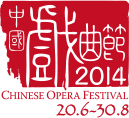

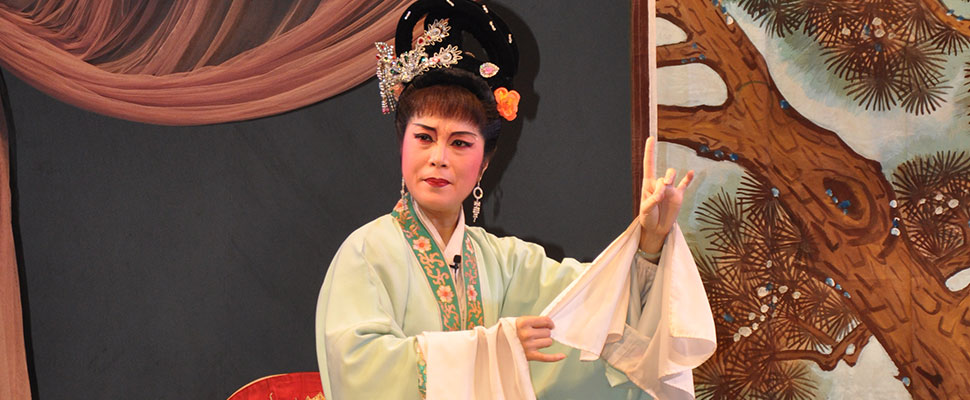
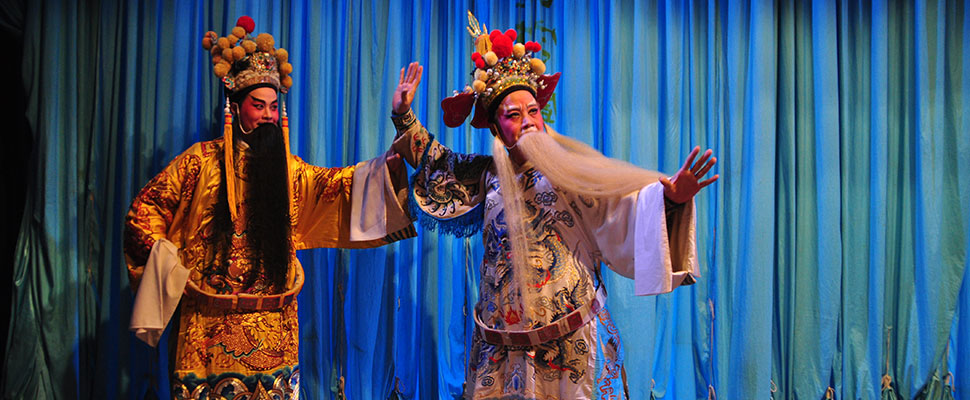
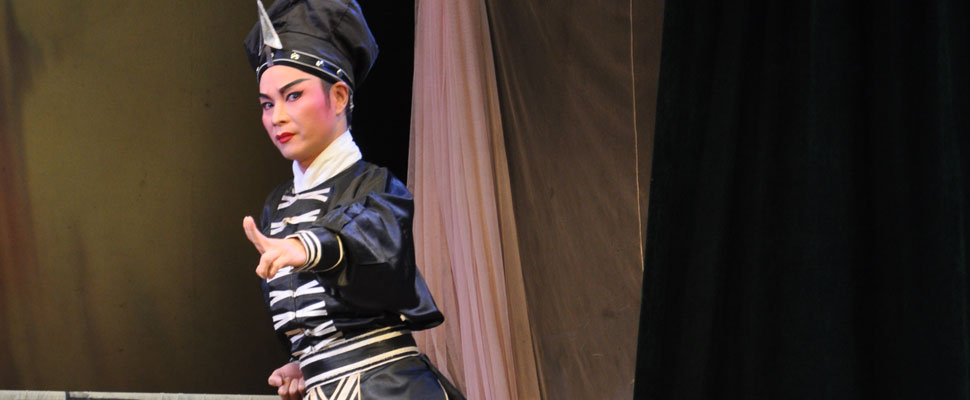
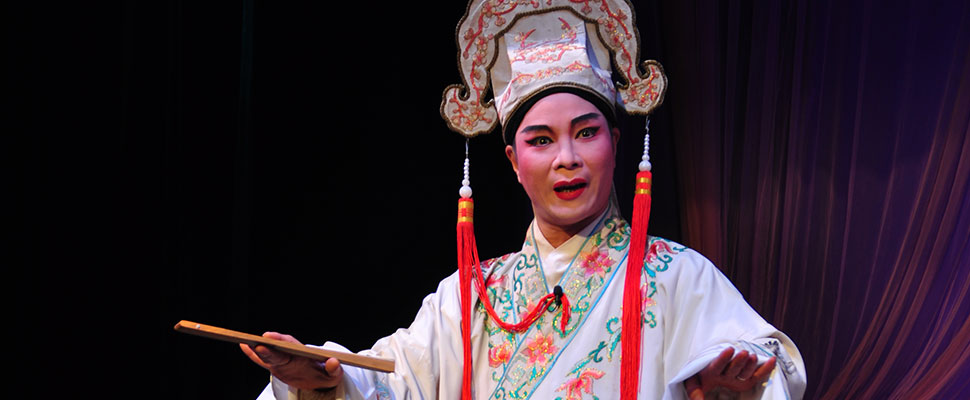
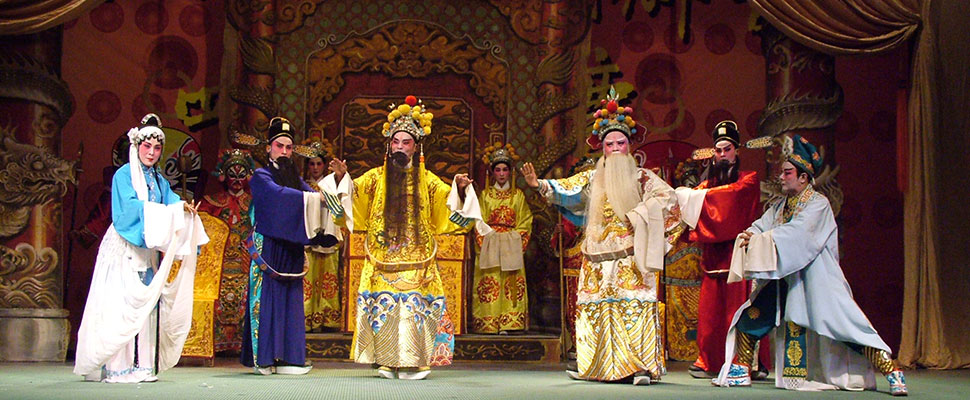










Winning multiple awards at the 4th Guangdong International Arts Festival Theatre Extravaganza in 1993, Chrysanthemum is an intriguing drama with well-knitted plot and meticulous characterization. The protagonist Duke Ma Yinglong is played by a laosheng fully displaying his stylized techniques.